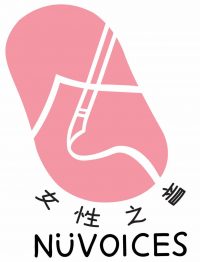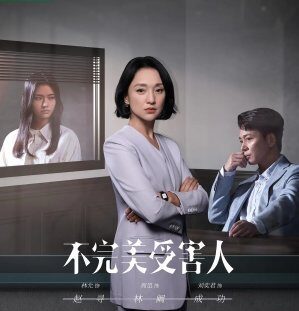BY LIJIA ZHANG
A star-studded Chinese TV drama delving into workplace sexual harassment titled Imperfect Victim recently ended, but the debate it triggered rages on. The show, which ran to 29 45-minute episodes, centres on a rape case: beautiful, young personal assistant Zhao Xun accuses her powerful and handsome boss, Cheng Gong, the company president, of raping her. But the case is complex, and so are the characters involved.
Within three months, Cheng, a married man, promotes Zhao from a trainee to the position of senior assistant, multiplies her salary and showers her with gifts worth 880,000 yuan (US$122,170). She makes little attempt to stop him. Then one rainy night, the police turn up at the company’s apartment suite, having received an anonymous tip-off about rape. Zhao, traumatised and confused, denies she has been violated. Five days later, she files a lawsuit against him.
The popular and high-quality drama led to a heated discussion among the audience about the nature of sexual harassment, gender inequality, the unbalanced power play in the office and, interestingly, who is really the victim.
Many viewers disliked Zhao, accusing her of being weak, vain and greedy. One said the character was someone “who wants to be a mistress but also wants a chastity arch” – a memorial used to mark a woman’s extraordinary chastity in feudal times. Some said Zhao had hardly said “no” throughout the drama. “A girl, no matter how naive and stupid, knows how to say no. So, Zhao Xun is just a cunning woman who wants to have things without putting in the effort,” one said. Some – mostly male, I imagine – even claimed the president was the real victim.
In the show’s opening scene, Zhao, wrapped in a white towel, is curled up in a bathtub, crying while it rains outside and her boss sleeps in the bedroom. Her pained expression tells me clearly that she felt violated.
Even if she did not fight back when he forced himself upon her, her silence did not mean she was willing. As long as a person does not give consent for the sexual intercourse, it is rape. It is obvious to me that she didn’t. Before entering the bedroom, it’s clear she wants to leave but he picks her up and takes her to bed. It’s clear to me that he committed sexual violence, a crime.
Many in the audience have scrutinised areas where Zhao could have done better; for example, she could have refused his gifts. But the reality is that in many Chinese companies, the boss has such power over his employees that refusing his gift may mean the end of employment.
I am not too surprised by the criticism aimed at Zhao. The character assassination of rape victims is not an uncommon practice, and not just in China. Some 35 years ago, Hollywood produced a rather unusual film called The Accused, which focused on the victim’s experience. A young woman is gang-raped in a bar by three men. She successfully sues them and the bystanders. Her character comes into question when her attackers are prosecuted. Does she have a history of drinking? Was her skirt too short?
In Imperfect Victim, the president countersues Zhao for defamation. Her personal information is leaked, she is ruthlessly attacked online and her reputation is ruined. Unable to bear it all, she tries to commit suicide but survives with serious injuries.
In real life, her death would have been a probable outcome. But the director decided to put a positive spin on it. Helped by her brilliant lawyer, Zhao wins the case, and Cheng is ordered to apologise to her. And she gets the 1 yuan compensation she asked for – it was never about the money but about clearing her name. For me, that was an unrealistic touch in an otherwise very realistic drama.
Zhou Xiaoxuan, a prominent face in China’s #MeToo movement, was also sued for defamation after she accused Zhu Jun, a high-profile TV presenter, of sexual assault. She countersued, demanding an apology and compensation, and failed. Last year, her appeal was dismissed after a court in Beijing ruled that she lacked sufficient evidence. This was hardly a surprising result. High legal barriers and social stigma have silenced many victims.
I am delighted to see a TV drama like Imperfect Victim dealing with such serious social issues head on. For centuries, Confucianist ideas that women are inferior dominated Chinese society. It is partly due to the deeply rooted patriarchal culture that sexual harassment is prevalent in the workplace, so much so that on International Women’s Day this year, the government issued a guidance specifically to combat the problem.
But I do find the title Imperfect Victim problematic in that it might further encourage a victim-blaming culture. Let’s not focus on the weaknesses of the victim but examine the perpetrator with a critical eye. A victim is a victim, whether she is perfect or not.
This essay was originally published at the South China Morning Post.
About the author
Lijia Zhang is a factory-worker-turned writer, social commentator and public speaker. One of the few Chinese who write regularly in English for international publications, her articles have appeared in The Guardian, The South China Morning Post, Newsweek and The New York Times. She is the author of the critically acclaimed memoir “Socialism Is Great!” about her decade-long experience of working at a rocket factory in Nanjing and her debut novel Lotus, on prostitution in contemporary China, was published by Macmillan and was featured by BBC radio’s World Book Club. She is a recipient of the prestigious fellowship on the International Writer’s Program at the University of Iowa. Lijia has lectured at many conferences, institutions and universities around the world, including Asia EU Economic Forum, European Institute for Asian Studies, The University of Sydney, Harvard, Columbia, Stanford and Oxford. She is a regular speaker on the BBC, Channel 4, CNN and NPR. She divides her time between London and Beijing.

